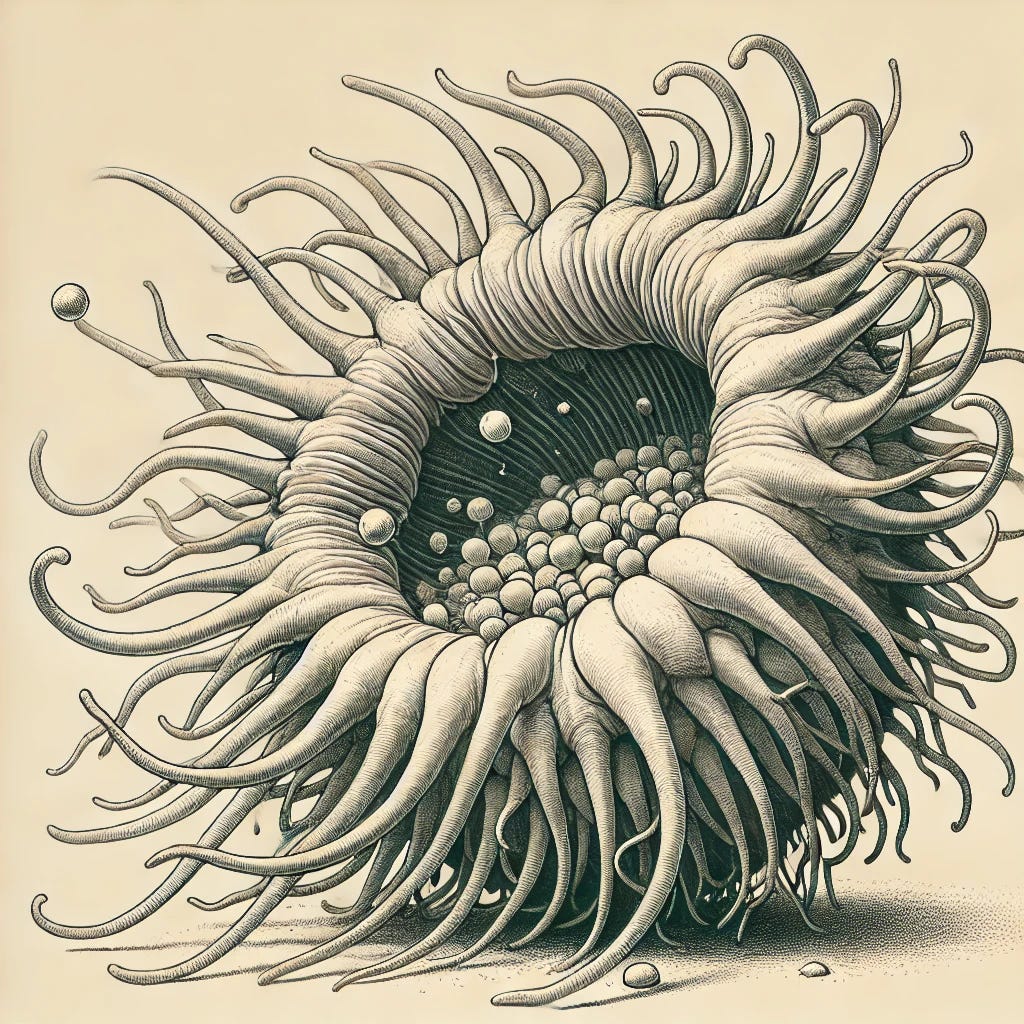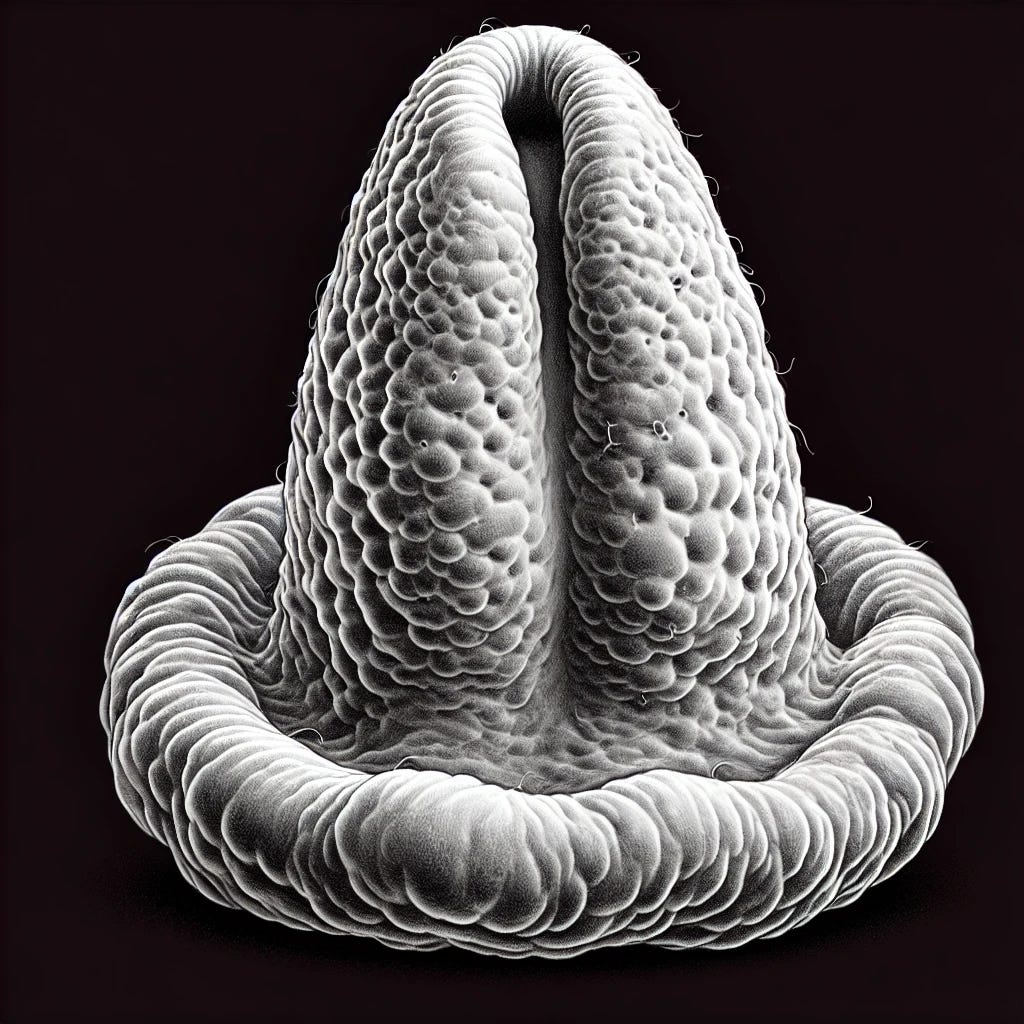Polyps
The ancient Greeks had a word to describe sea creatures with many legs. This classification included the octopus and the squid, and probably things like sea anemones and corals.
All of these things shared protruding legs, although the only legs the sea anemone has are used to shove food into its mouth. They can sting the prey, then make sure it ends up going into the center of the anemone, where the mouth is and where ingestion starts.
After it digests the animal, sometimes as quickly as fifteen minutes later, it spits everything back out that it can’t digest. In other words, the anemone poops from its mouth.
Alas, I’m not only writing about poop today, so let’s keep things moving along.
The Greeks named these critters polúpous. The first word, polús, means “many”, and we still use the prefix today in the form of poly. Polygons have a lot of sides, polyamorous people have many lovers, and polymathic people tend to focus on many disciplines.
Poús, that second part of the word, means “foot.” Over time and due to linguistic drift, we just dropped that suffix and ended up with the word we use today, polyp. In between then and now, the Romans decided to start using the same term to describe nasal tumors.
Nasal tumors, you might be wondering? Why would the Romans zero in on this particular affliction, and not more common forms of tumors? Were the Romans obsessed with looking up one another’s noses for religious reasons?
This has everything to do with how visible these polyps (as they are commonly called today) were inside the nostrils. They looked eerily similar to the sea anemones or octopi the Greeks had named polúpous, so the Romans started calling them polypi (singular was polypus).
Today, when we use the phrase nasal polyp, we don’t mean a cancerous lump. Instead, polyp is used to describe more benign growths that those ancient Romans named after multi-footed creatures in the sea. These little growths can still cause issues like being able to breathe in through your nose, but they’re not considered anywhere near as dangerous as a tissue that has developed into cancer.
We also use the word polyp to mean nonspecific growths anywhere in the body, so the term has lost some of its original form, where the ancient Romans noticed how similar nasal growths were to multi-tentacled sea creatures. The word has drifted a long way to its present state.
Were you already familiar with polyps? Have you had or known someone who has had a polyp removed or examined? Were you disappointed when you discovered this wasn’t going to be about poop?





Speaking of poop and polyps... that's typically what they're checking out and trimming when you get a colonoscopy
The Greeks and Romans could use the phrase with irony. In "The Odyssey", Homer has Odysseus face off with a giant cyclops named Polyphemus (since he has only one eye, he can't necessarily have a "polyp" of them).